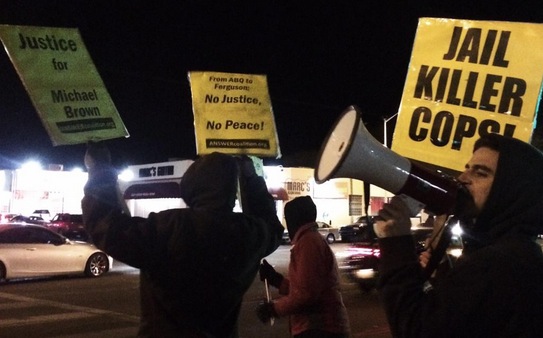I’ve been trying for weeks to find the right words to explain how I feel about this complex story of American police brutality. Our system is so corrupt that it isn’t even a matter of crime and punishment – it’s a matter of life and death. The fear is growing, but so is the resistance. People who have never protested before are marching in the streets. The militarization of the police is undeniable – rows of police officers armed in riot gear, throwing tear gas. The military is funneling weapons into our neighborhoods, promoting this culture of violence.
It’s important to look at police brutality on a personal level because our dominant media sources provide a large, sprawling, general summarization of these trends. This does no justice to the inexplicable, heartbreaking loss that our communities are facing. This landscape of panic and sorrow is unhealthy for us as a whole, but each one of us internalizes this brutality in our own way.

I think what frustrates me the most is hearing others defend Darren Wilson on the basis that this was simply an incident of crime and punishment, which then happened to translate to violence, and unfortunately, resulted in death. I don’t think that is what justice looks like. This is our turning point. We must not only become more aware about injustices, but to make sure we know what justice looks like. We have to know what we want, and we have to be conscious that we are not connecting justice with violence. Why must our society believe that punishment is synonymous with torture, violence, or death?
I read this passage by bell hooks and it seemed eerily applicable to Darren Wilson, and the narrative of the story of Michael Brown. It reads:
The war is everywhere, and it’s now. In case we weren’t already aware, the non-indictment of Daniel Pantaleo, the officer that killed Eric Garner, is yet another example of how our legal system is twisted. The story of Eric Garner had absolutely none of the ambiguities that the story of Michael Brown had, yet it had the exact same results. The entire police encounter was filmed. He didn’t need witnesses, because we could all witness it for ourselves. As if that wasn’t hopeless enough, the one person that was indicted was the man who filmed who did film it. What message does that send us?

The DOJ report also made it mandatory for APD to wear on-body cameras, which is the first mandate of it’s kind in our country. Only a year ago I would have believed that technology could fix our police force, and hold them accountable. After the death of James Boyd, my confidence in this lessened. Now, after the death of Eric Garner, I do not think we can continue to believe that cameras will fix these injustices. It is incredibly important to document these injustices, to record the police, and to capture this violence – but it is not the solution. It does not deter police from violence, instead, it simply acts as a political tool of “justice.”
It’s important to remember that these injustices are happening to humans. It’s easy to get lost in the “newspeak.” It seems like such a horrific problem to be so common. But that’s precisely why awareness is important. I hope for a culture that acts through respect, love, and trust. I think these protests will not quit until we shift in the way we approach law enforcement. I pray that a story of hope and justice will take place of one of violence. I think about how different the world can be if we started seeing more acts of love instead of acts of violence.


Leave a Reply